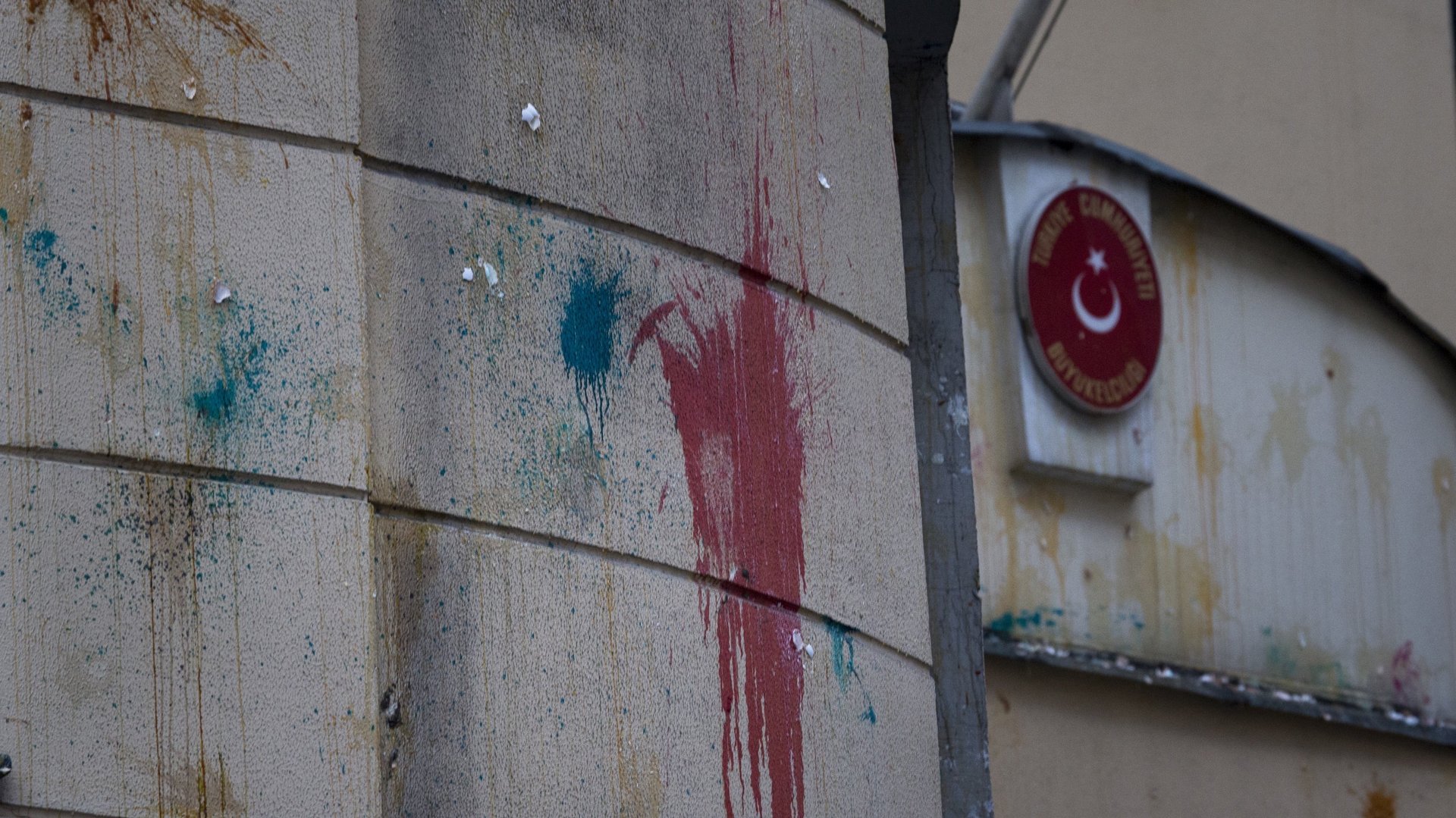After the downing of its jet, Russia’s relations with Turkey will never be the same
ISTANBUL – After Turkey shot down a Russian war plane on Nov. 24, following reportedly repetitive violation of its air space on the Syrian border, many believe that Russia is likely to retaliate sooner or later; while opinions on Turkey’s decision to down the plane differ depending on where the speaker stands.


ISTANBUL – After Turkey shot down a Russian war plane on Nov. 24, following reportedly repetitive violation of its air space on the Syrian border, many believe that Russia is likely to retaliate sooner or later; while opinions on Turkey’s decision to down the plane differ depending on where the speaker stands.
An audio recording of the event tells us that a Turkish F-16 pilot warned the Russian SU-24 pilot ten times before bringing it down. Meanwhile, Russia argues that its air force did not violate any air space.
As expected in any national crisis like this, people, including some staunch critics of president Recep Tayyip Erdoğan, whose ruling party was recently reelected, tend to rally around the flag and take a patriotic stance. Shortly after the downing of the Russian jet, US president Obama also defended Turkey’s right to protect its own borders. Yet, people are wary about confronting a belligerent power, and are approaching the unprecedented crisis with caution, claiming that diplomatic options should have been exhausted before taking such irreversible action against Russia.
Given Turkey’s disproportionate dependence on natural gas from Russia, the first reaction of the man on the street as winter approaches was concern over a possible cut in Russian gas. However, international-relations experts such as professor Gokhan Bacik comment that great powers like Russia do not act on impulses, but rather strategically. He tells Quartz that Russia, an actor that survived the Cold War, will retaliate without a doubt, possibly on multiple fronts on a long-term basis.
Bacik criticizes Turkey for thinking in the short term, while noting that Russia, a member of the United Nations Security Council, might choose to vote against Turkey on any issue from now on. He further directs attention to the negative coverage in Russian media about Turkey, warning that Russia will turn public opinion against Turkey deliberately. Just to prove this point, Russian protests against Turkey started on Nov. 24, which led the Turkish ambassador in Moscow to leave the embassy with police escort. On Nov 25, the Turkish embassy in Moscow was attacked by an angry mob.
On the same day, the Russian parliament introduced a bill to recognize the 1915 Armenian genocide in quick retaliation.
Since Turkey is officially under NATO protection, some urge the collective defense organization to stand in solidarity against possible Russian retaliation. But there is not full trust among Turks that NATO would stand by Turkey unless there is further escalation in the absence of Russian aggression. According to retired Turkish ambassador Unal Cevikoz, speaking with Quartz, the US defused any possible NATO action for now by stating that this is a bilateral issue between Russia and Turkey.
For the first time since 1952, a Russian jet is brought down by a NATO member state, and it is clear that Russia’s national pride was hurt as evident in Putin’s harsh remarks. He said they were “stabbed in the back,” while foreign minister Sergei Lavrov immediately cancelled his Nov. 25 trip to Turkey. There are calls by Russian officials to their citizens to cancel tours to Turkey, which is a popular warm destination, as well as orders of certain imports from Turkey. Both countries benefit from high-volume trade relations which is now a concern for many on both sides.
The future of Turkey’s first nuclear plant project, commissioned by Russia, is currently unclear. What we do know is that Russia-Turkey relations will never be the same. One might think of downed jet as a “game changer” similar to the deterioration in relations with the United States following Turkey’s decision not to allow US troops to deploy into Iraq from Turkish soil in 2003, or the crisis with Israel following the killing of nine Turkish citizens in the Mavi Marmara flotilla. Amid this tension, the Syrian quagmire, which was already too complicated for ordinary citizens to understand, will become even more complex as a proxy war with Russia’s direct involvement.
As Turks, we might not have to spend a cold winter in possible absence of Russian natural gas, but undoubtedly Turkish-Russian relations, which was characterized by centuries of intermittent warfare and peace, will remain in the grips long winter for the foreseeable future.